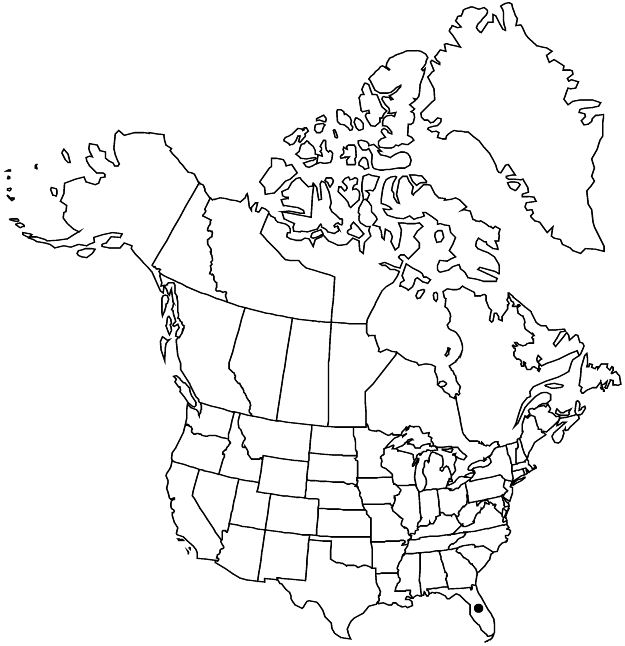Difference between revisions of "Cissus verticillata"
Taxon 33: 727. 1984.
FNA>Volume Importer |
imported>Volume Importer |
||
| (One intermediate revision by the same user not shown) | |||
| Line 69: | Line 69: | ||
|publication year=1984 | |publication year=1984 | ||
|special status=Weedy | |special status=Weedy | ||
| − | |source xml=https:// | + | |source xml=https://bitbucket.org/aafc-mbb/fna-data-curation/src/2e0870ddd59836b60bcf96646a41e87ea5a5943a/coarse_grained_fna_xml/V12/V12_795.xml |
|genus=Cissus | |genus=Cissus | ||
|species=Cissus verticillata | |species=Cissus verticillata | ||
Latest revision as of 19:17, 5 November 2020
Lianas, low to moderately high climbing, often scrambling over low vegetation. Branches usually hairy, sometimes glabrous or glabrate; branchlets succulent to subsucculent when young, becoming woody; growing tips usually hairy; tendrils 2-branched. Leaves simple; petiole shorter than blade; blade oblong to ovate, 5–15 × 2–8 cm, unlobed, margins coarsely to finely serrate, surfaces usually hairy, sometimes glabrous. Flowers greenish or yellowish green. Berries black, 6–10 mm diam. 2n = 48.
Phenology: Flowering and fruiting year-round.
Habitat: Coastal hammocks, low ground.
Elevation: 0–20 m.
Distribution

Fla., Mexico, West Indies, Bermuda, Central America, South America.
Discussion
Cissus verticillata in the flora area is found in the southern two-thirds of peninsular Florida. The inflorescences of C. verticillata, and less often C. trifoliata, are sometimes greatly expanded and deformed by the smut Mycosyrnix cissi (de Candolle) Beck, with the individual flowers being transformed into subcylindric structures containing the spores of the fungus.
Selected References
None.